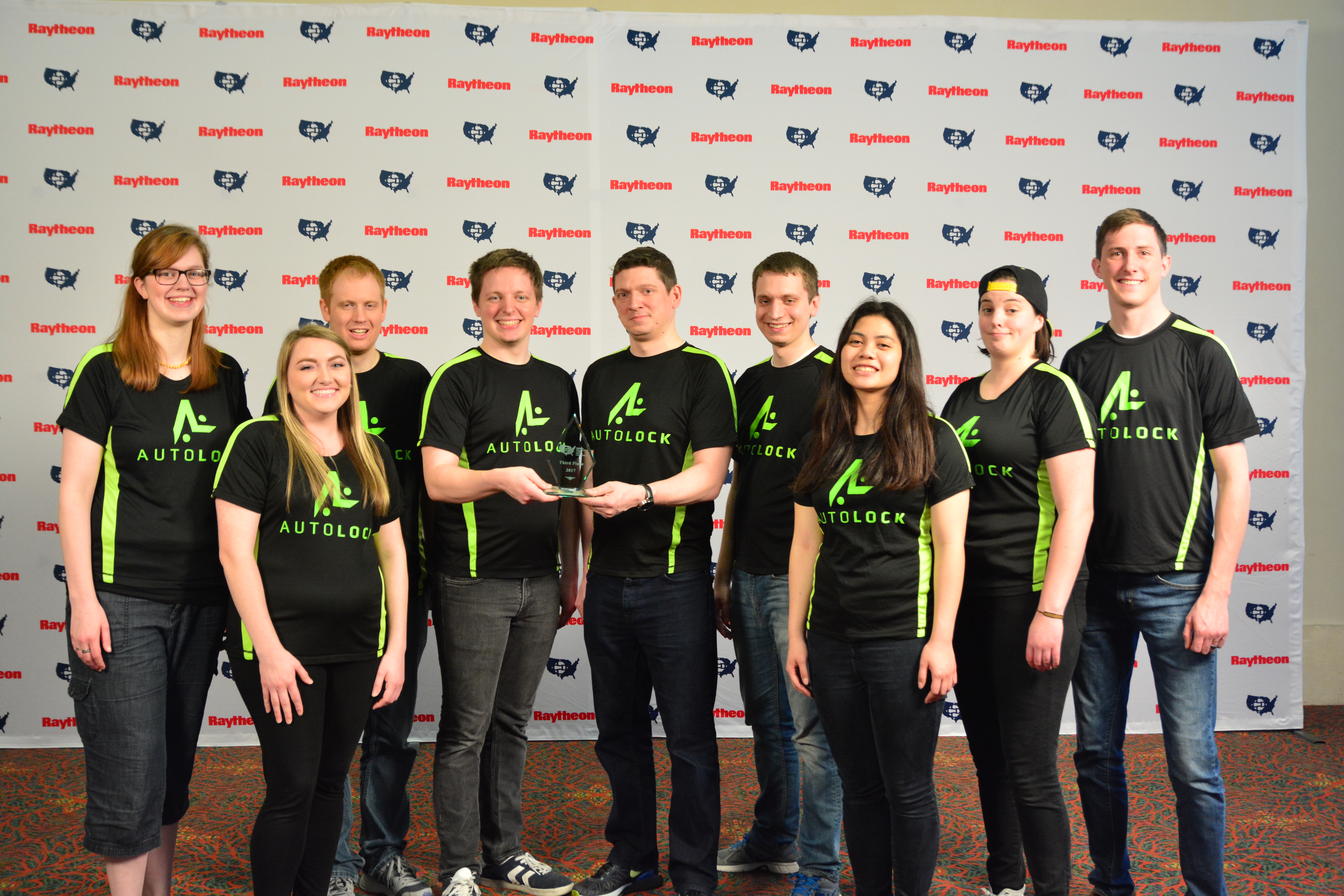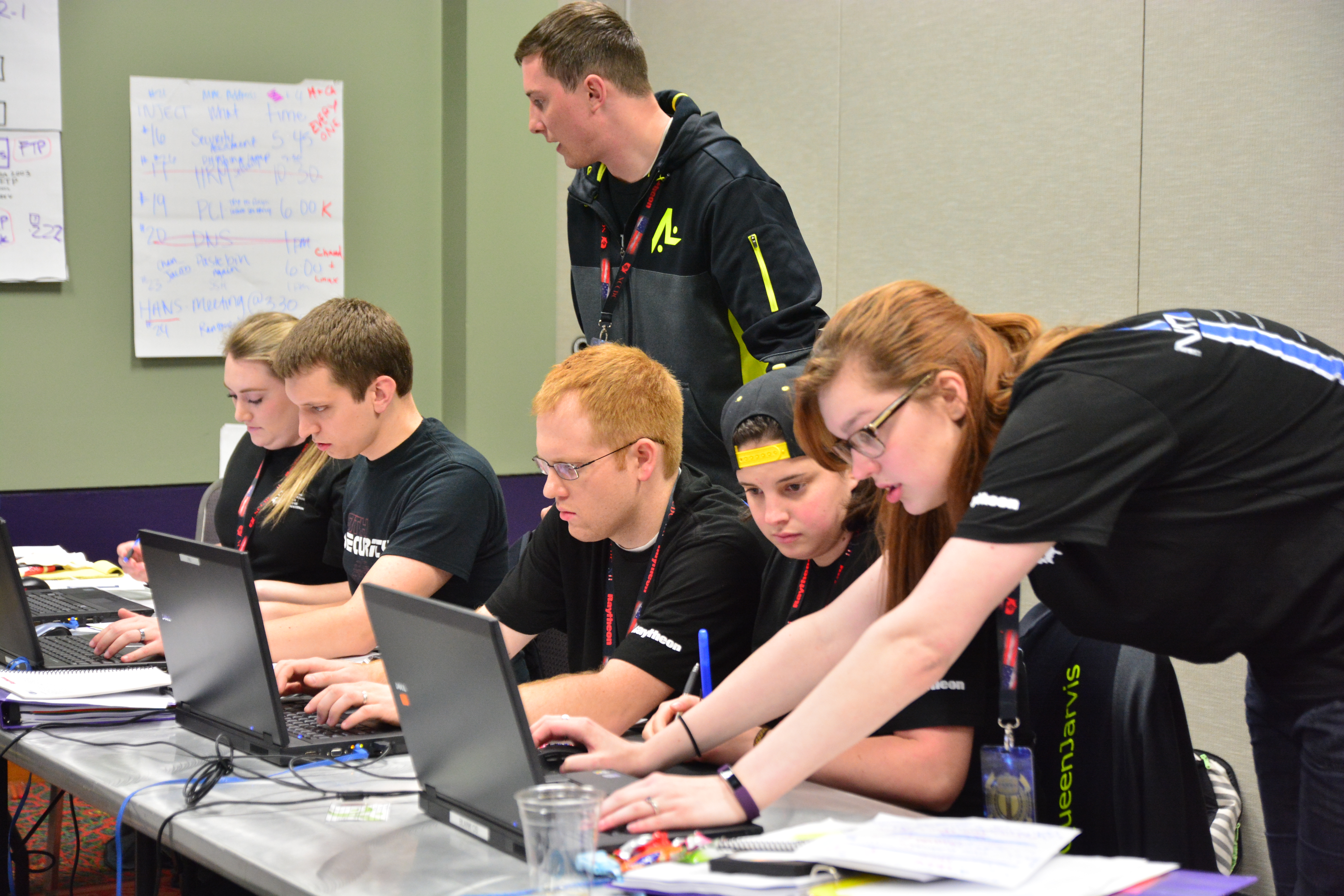
The BYU Collegiate Cyber Defense Team placed third at the National Collegiate Cyber Defense Championship in April, and the team now sets its sights on performing even better at an international competition this June.
“We practice for about three to four hours each week,” said BYU IT professor and team coach Dale Rowe. “The competition is designed to gauge reactions and give teams a real-world experience. Students face new code and the methods used in competition are not things they might see in the wild.”
Each competition places the eight team members in a real-world scenario in which participants must maintain a fictional company’s infrastructure while sending out regular project reports and suggestions. Nearby is a team of IT professionals whose job it is to create malignant code and attempt to hack the company’s systems.
The competition takes place over the course of two days, and teams must band together for a total of 16 hours to keep its systems operational.
“It’s definitely stressful,” said BYU junior and team lead Hans Farnbach said. “There is communication that definitely needs to happen. Your brain is fried and you don’t want to think. You are on high alert for nine hours and constantly thinking. It’s the most stressful fun I’ve ever had.”
Open communication is a necessity in such a competition, and team members were quick to point out communication is the key to their success.
“All of our team members get along with each other,” said team member Cara Cornel. “If we didn’t have that good relationship, our communication would really suffer. Because we knew each other and all worked and practiced together, we were really able to perform well.”

BYU’s third-place finish at the National Collegiate Cyber Defense Championship makes them the only program in the nation to place in a top three spot two years in a row.
“Our team is made up of IT majors, and the program prepares them well,” Rowe said. “There is a real lack of cyber security professionals with IT majors.”
The cyber security field also suffers from a lack of female representation. Rowe said only about 10 percent of cyber security professionals are female.
“We’re the only team since this competition has been running that is 50 percent female,” Rowe said. “When we walked into regionals and nationals last year with a team that is half women, it blew the sponsors away. They came up and asked, ‘Is this your team?’ They were really impressed. This year it really set a trend as teams brought more women than they normally had. It really was an improvement.”
The team’s next competition will take place in June at an international invitational in Seattle. The BYU team is already in the midst of practice and will look to improve upon their nationals performance against schools from countries around the world.




